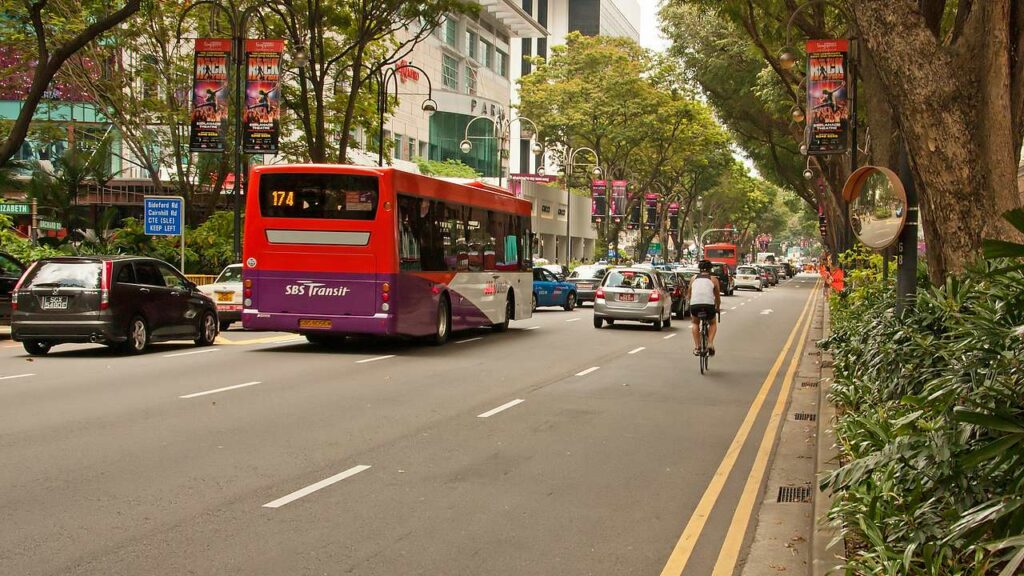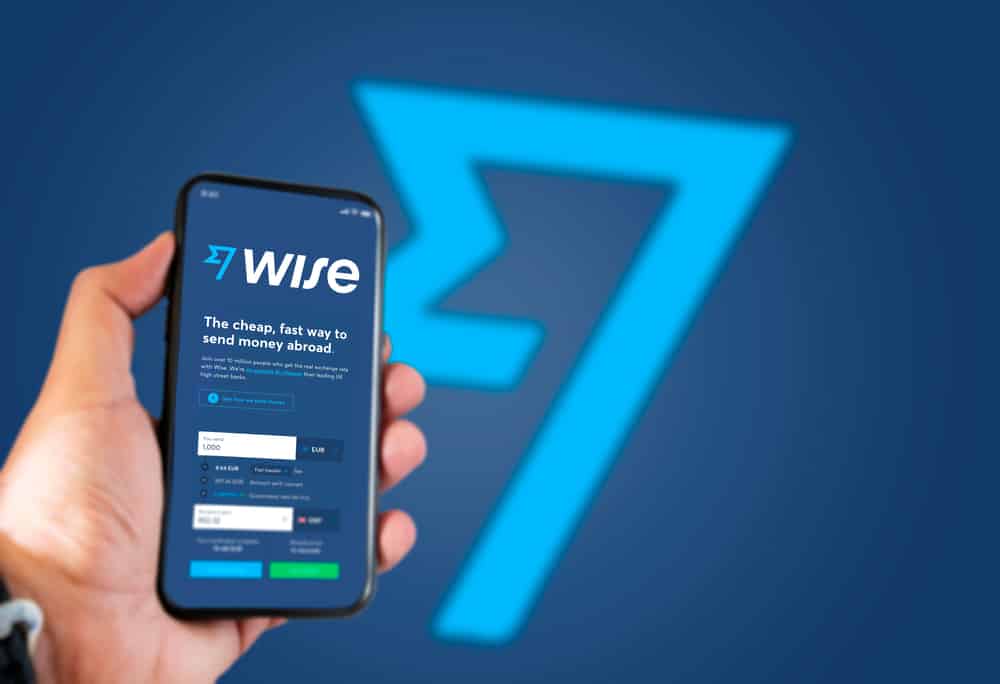Getting money out of Singapore as an expat – That will be the topic of today’s article.
Understanding the nuances of international financial planning is crucial for expats looking to efficiently move money out of Singapore
Nothing written here should be considered as financial advice, nor a solicitation to invest.
For any questions, or if you are looking to invest as an expat, you can contact me using this form, or via advice@adamfayed.com
It is usually better to “kill two birds with one stone” and invest as an expat, rather than send money home to buy shares or a house.
Introduction
Singapore is the dream of many – and this is not surprising. The big city impresses with its beauty and modernity. And some even want to move there to live.

Singapore is a city-state in Southeast Asia, consisting of 63 islands. It is considered one of the richest countries in the world with a developed market economy and good conditions for starting a business. Singapore also has one of the highest GDP per capita.
There are several options for moving to Singapore for permanent residence:
- Get married to a citizen of Singapore.
- Have a family in Singapore.
- Conclude a contract with a Singaporean enterprise.
- Open a business in the country.
- Invest in the Singapore economy.
Singaporean citizenship can also be obtained by world cultural and scientific
figures and athletes who have successfully performed at the world or planetary championships.

Pros of living in Singapore include:
- Modernity. Singapore is mostly made up of ultra-modern high-rises and skyscrapers, which gives it the image of the “city of the future”. It is really very nice and modern.
- Security. Singapore occupies a leading position in the list of countries in terms of security. Crimes rarely happen there and there are cameras everywhere in case of an emergency. Many tourists and migrants noted that it is really very safe to walk in the city even at night and in sparsely populated places.
- Purity. The streets, courtyards and everywhere in Singapore are very clean and tidy – trimmed lawns and flower beds, there are bins at almost every step, which are regularly emptied.
- Not crowded. Despite the fact that Singapore is an ultra-modern city with about 6 million people living in it, it is not crowded at all. There are rarely crowds and queues, the streets are quite free.
- Variety of reasons to move. As already mentioned, there are 5 grounds for moving to Singapore for permanent residence, so almost every person who wants to stay in this state has a chance to do so.
- High salaries. Thanks to a developed economy, in Singapore, almost all workers receive fairly high salaries. Even a university graduate who does not have work experience in his specialty can count on a good salary. Low-income people receive at least 1,000 SGD.
- Low prices for products. Compared to salaries, food in Singapore is very cheap, despite the fact that many products are imported from abroad. You can buy groceries both in supermarkets and markets.
- Health level. Medical services in the country are available even to people with low incomes, and the healthcare sector is developed very efficiently, despite low budget expenditures (compared to other states). Thanks to advanced medicine, Singapore has a very low mortality rate, including childhood, from AIDS, and people live to be 80 years old. This is also facilitated by access to high-quality water and sewerage for every resident of Singapore.
Every state has its cons. In Singapore they are:

- Developed system of fines. In Singapore, it is very easy to get a fine for smoking, chewing gum, eating in places that are not intended for this. And fines in Singapore (including car fines) are very expensive.
- Climate. Since Singapore is located almost near the equator, the climate there is equatorial – hot and humid. Scorching heat is rare there, but the temperature never dropped below 20 degrees Celsius. For some people, this climate is not suitable, and it will be very difficult for them to live in this southern country.
- Difficulty in buying a personal car. The Singapore government is trying to minimize the number of private cars from citizens in order to improve the environmental situation in the country. In order to purchase a car, a person will need to win the right to buy it and, in addition to the costs of the purchase itself, pay a registration fee (1000 SGD), pay 140% of the car’s value to the treasury and pay a monthly transport tax. Therefore, a private car in Singapore is an expensive pleasure. However, it is offset by an extensive and developed public transport network – residents can use buses, metro, cable car and monorail. Also in Singapore there is an active promotion of cycling.
- Corporal punishment and the death penalty. Singapore has become a developed and prosperous country thanks to harsh punishments for crimes. In addition to arrest and imprisonment, they practice beating the guilty with sticks, and for a serious crime they can be sentenced to death. Corporal punishment is practiced even in schools and within families.
- The impossibility of dual citizenship. Singapore prohibits having dual citizenship, therefore, if after obtaining a residence permit it is planned to obtain citizenship of this country, then you will have to part with the foreign citizenship.
Is it worth living in Singapore?

Singapore is a state where all spheres of human life are highly developed. There is a high level of wages, a fairly inexpensive and modern standard of living. If you have a strong desire to move and live in Singapore, then this is a good idea, but you should carefully consider the main disadvantages of this city-state: it is hot there, there is an extensive fine system and it is almost impossible to own a car.
To apply for citizenship or residence permit, the following documents must be submitted to the Singapore Migration Service:
- Foreign passports.
- 4 photos 3*4.
- Certificate of no criminal record.
- Bank statement on financial income.
- The result of a medical examination in a Singapore medical institution.
- Reason for moving.
- Singapore issues 4 types of long-term visas, which differ in the purpose of the move (conclusion of an employment contract, family reunification, etc.).
How to get your money out of Singapore?
In everyday life, many of us are often faced with the need to transfer money abroad or receive money from there. These can be transfers to a provider, a partner, a child studying abroad, parents, as well as urgent transfers in case of unforeseen circumstances during departure. In any case, the transfer of money should be carried out quickly and as profitably as possible. How to do this and what options are most convenient and safe?
How to get out your money out of somewhere? Today, there are several ways to transfer money abroad and even if there is experience of such operations, the choice of method still needs to be approached competently. Firstly, it will save you from extra spending on commission. Secondly, it will significantly save translation time. Thirdly, it will guarantee the security of sending funds.
So, today the following methods of getting money out of Singapore can be an option:
- bank transfer;
- transfer using electronic payment systems;
- transfer using international money transfer systems.
In addition to licensed domestic or cross-border money transfer service providers, there are other financial institutions such as banks, commercial banks, finance companies, or credit card or fee issuers that provide these services.
In Singapore, it is prohibited by law to engage in the provision of money transfer services without a valid MAS license. Do not use the services of unlicensed persons.
There are many ways to transfer money from country A to country B, and for this article, our target is Singapore, that is very popular among many expats, students and business people, and it is very common to need to get money out of Singapore.
In general, the transfer of money from one country to another is a very common phenomenon today. Here in this article, you can find potential and practical options to transfer money quickly wherever you are, or how to get your money out of Singapore without any problems, so let’s get started with the most popular money transferring financial companies such as:
- Western Union
- Wise
- World Remit
- Xoom
Western Union

One of the most common companies you can come to is Western Union. This company gives you an easy way to send cash abroad, even if the recipient doesn’t have a bank account.
Western Union is a big name in the money transfer industry and almost everyone has a bank account. But what should you use when sending money to friends and family? Answer: It depends on your circumstances.
To make a transfer using Western Union, you go to their website, enter the transfer amount and to which country and see how much you will pay for the exchange. Once completed, Western Union converts and sends your money to a bank account or for cash collection at points around the world. You can also initiate a transfer over the phone, via the mobile app, or in person.
For international transfers, calculating transfer fees can be confusing. While most fees start at $5, they can go up to $45 when paying with a credit or debit card in cash in some countries. However, when sending money to high-traffic countries such as Mexico or India, some agents offer commission-free transfer options.
Depending on the country you’re sending money to, a typical Western Union exchange rate can be up to 6% higher than the market average. If you’re sending a large amount overseas, that means hundreds of dollars go straight into Western Union’s treasury.
Delivery speed depends on the translation option. At the agent’s office or over the phone, your transfer can be completed within minutes (at a higher cost). The cheapest options may take five days or longer, depending on the country.
So yes, Western Union can be a good option for sending money from Singapore to your family or friend.
Wise

This is an Estonian company that allows you to make transfers to other countries, paying only the difference in rates and a low commission. This is a great alternative to bank transfers, as the money goes to the recipient’s bank card, but you don’t lose money on interest.
To transfer you need:
- Register on the company’s website (only for the sender). You get a real IBAN account, which you can also use to receive money from other countries
- Select the amount you want to send
- Add recipient bank details
- Verify identity (ID photo)
- Pay for the transfer
- You can track your transfer
Money transfer startup TransferWise offers cheap ways to send money from the US to over 70 countries. The exchange rates are among the best you will find. You can fund the transfer in various ways, such as using a bank account or card, but the recipient must have a bank account. The highly acclaimed mobile apps and website contain useful cost calculators and other information to make transfers convenient.
The company offers low commissions. The fixed cost for many countries is a combination of a fixed amount of around $1 and a percentage of just under 1% of the transfer amount.
Credit card fees are higher. Using an ACH transfer from your bank account or debit card is usually cheaper. If you pay by wire transfer with TransferWise, your bank will likely charge you a fee.
But this international money transfer is not always the best option for large amounts of transfers. Some providers charge no fees and offer competitive markups, which can make some transfers cheaper than TransferWise.
World Remit

WorldRemit’s network is not as big as brands like Western Union, but you can often find better rates and lower fees with WorldRemit. In addition, the WorldRemit app and website tell you in advance what exchange rates and fees you will be paying without first registering. This makes it easy to compare with other companies to see if you’re getting the best deal.
One of the main disadvantages of WorldRemit is that you cannot pay with cash, but its global network supports cash acceptance in many countries around the world.
Other delivery options, such as mobile phone top-ups, bill payments, and door-to-door cash delivery, complement this service for some delivery destinations. You will also often be able to find promo codes to get a better deal if you are buying an item for the first time.
Transfers through WorldRemit will add a fee and markup to the average market margin. Transfer fees for WorldRemit vary, but the standard shipping fee from the US to most countries is $3.99. WorldRemit fees and exchange rates may vary depending on the following:
- Location. Fees and exchange rates may vary depending on the country you are shipping to. Even if two destination countries use the same currency, the exchange rate offered by WorldRemit may differ when shipped to each.
- Quantity. Although the fee for most transfers is $3.99, in some countries the fee will be higher depending on the amount you send.
- Delivery. Sending cash usually has a higher fee, while sending to a bank account is cheaper.
Unlike many competitors, WorldRemit offers the same exchange rate no matter how much you send. This is another good option for those expats who are looking for a safe way to send money out of Singapore.
Xoom

Xoom, owned by PayPal, runs at speed. Founded in 2001, the web provider completes most transfers within minutes. You can send money to over 160 countries with different delivery options such as bank transfer and local cash pickup depending on the country. But you will need to provide a lot of personal information in order to send large amounts of money.
Compared to its competitors, Xoom has an average exchange rate margin, and markup rates above the market average are also on par.
To use Xoom, you must first register for an account and download the mobile app. You can then send money through the app or by logging into the Xoom website. Your money transfers can be funded from a bank account, debit card, credit card, or PayPal balance.
Once the transfer is completed, you will receive an email or text notification of the status. You can also track the progress of your transfer in the app. Xoom charges a fee for all transfers. These fees usually start at $4.99 and increase from there. You can also use Xoom to pay your bills – the fee is $2.99.
One of the biggest advantages of using Xoom over other payment apps is that transfers are fast, usually within minutes. As for the exact transfer times, it depends on how you pay, as well as on the chosen delivery method.
If you use a credit card, debit card, or PayPal balance as your payment method, a Xoom transfer can often arrive instantly or within minutes. But it can be expensive, especially if you use a credit card.
Some destinations may take longer to transfer, even if you use the funding options above. Using a bank account tends to slow down the transfer process and it may take a few days for the money transfer to complete. It is important to note that large money transfers can also take longer than small money transfers.
When you use any personal finance or payment app, security is an important consideration. Xoom uses 128-bit data encryption to keep your data private. This means that you can be sure that your personal and financial data is protected.
Main tips of properly transferring your money to/from Singapore

- Choose your service provider carefully. Be wary of special rates that seem too good to be true.
- Banks and licensed money transfer service providers may charge different fees and exchange rates. Compare costs.
- Find out how your money will be transferred, including the agents they will use. Ask your service provider what happens if your recipient does not receive your money order.
- Choose service providers who have installed adequate security systems (such as video surveillance) to provide you with a safe and secure money transfer environment.
- Take your identification documents with you for verification.
- Make sure you get the proper receipt as proof of the transaction in the event of a dispute. The receipt must include:
- Information about the activities of the licensed service provider
- Transaction date, transfer amount, exchange rate (if applicable), commissions and other fees
- Transaction reference number or your details and contact details
- Your recipient’s bank account details, if applicable
- Contact the recipient to make sure they received the money.
- Domestic money transfer service providers must ensure that the recipient receives the money within three business days of the date any money is accepted for any domestic money transfer service.
- Money transfer agents must ensure that the recipient receives the money within seven business days from the date of acceptance of any money for any cross-border money transfer service.
- Your service provider should contact you for further instructions if the money does not reach the recipient on time.
- Check with your provider if there is any cancelation or delay. Domestic money transfer service providers and cross-border money transfer service providers must contact you for further instructions if the money is not received by the recipient within the time frame specified above.
Pained by financial indecision? Want to invest with Adam?

Adam is an internationally recognised author on financial matters, with over 381.8 million answers views on Quora.com and a widely sold book on Amazon



